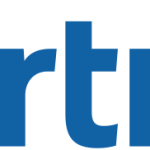- Industria: Consulting
- Number of terms: 1807
- Number of blossaries: 2
- Company Profile:
Gartner delivers technology research to global technology business leaders to make informed decisions on key initiatives.
Gartner defines a consumer NAS as a centralized, multifunction storage system for the home network. It can function as a file server with remote access to multiple PCs and media players, a print server, a media server, a backup and archive system, and temporary storage for Internet downloads or video-on-demand.
Industry:Technology
Gartner defines a consumer NAS as a centralized, multifunction storage system for the home network. It can function as a file server with remote access to multiple PCs and media players, a print server, a media server, a backup and archive system, and temporary storage for Internet downloads or video-on-demand.
Industry:Technology
Consumer Internet services are data services provided by ISPs that connect subscribers to the Internet using either a dial-up connection over a PSTN line or over a broadband connection. Typically, these are flat rate or metered services based on time or data usage.
Consumer Internet accounts represent the number of active fee-paying individual consumer accounts that can be associated with commercial ISPs. In general these accounts service subscribers who are connecting from home.
Industry:Technology
Consumer digital rights management (DRM) technologies control how consumers use copyrighted material that is distributed in digital form, such as music, video files or text in e-books.
Industry:Technology
A broadband line is a connection between a consumer’s home and a carrier’s network that provides data access services of at least 256 Kbps. In most cases this is a physical connection using copper-based DSL, cable modem or FTTH/FTTP with Ethernet in the last mile in a building. However, Gartner also includes other emerging access technologies, such as wireless broadband, satellite and power lines when they are used as replacement technologies for residential fixed-line broadband.
Broadband services revenue includes all the retail revenue associated with providing broadband access to consumers. This does not include IP services revenue — especially Internet access revenue — that is commonly bundled with the broadband line. Broadband access and Internet access are two different services, and Internet access revenue is reflected in the Internet segment.
Industry:Technology
A broadband connection is a direct path between two termination points, one of which is in the consumer’s home, the other at the carrier’s central office (CO) or local broadband aggregation node. In the case of wireless broadband access, it is a wireless connection between the home and the aggregation node. The number of connections is equal to the number of in-service lines that are subscribed to by consumers.
Industry:Technology
A style of selling based on uncovering, understanding and responding to the customer’s underlying business need through meaningful dialogue.
Industry:Technology
One of two standards for rotating storage media, in which the disk spins at a higher speed on the outside tracks than on the inside tracks (where the circumference is smaller), so that all data moves past the head at the same rate. The other standard is constant angular velocity (CAV), in which the disk spins at the same rate at all times.
Industry:Technology
Constant bit rate (CBR) is an asynchronous transfer mode (ATM) service category, defined by the ATM Forum, that guarantees a constant bandwidth with low delay, jitter and cell loss. Circuit emulation is a typical application.
Industry:Technology
The hub where the needs of support groups, distributors, suppliers and customers are consolidated, and where network and system management (NSM) tools are integrated. The CSD has become the integration point for multiple management disciplines, the single point of contact for providing multiple IS services to the end users, and the source of automation for multiple workflow processes.
Industry:Technology
